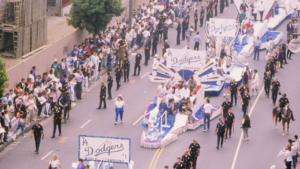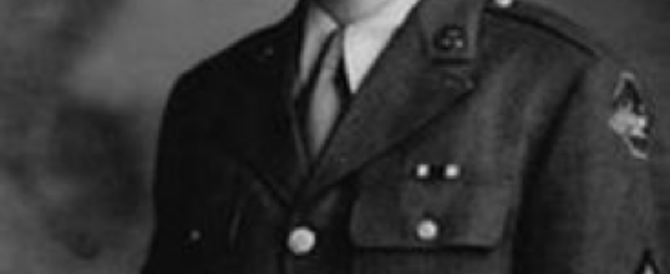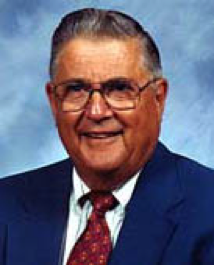Sexual Predators on the Hill

The recent avalanche of revelations about sexual harassment in high-profile workplaces include allegations against the longest serving member in the House, John Conyers. The press and the public seem stunned to learn that Representative Conyers confidentially settled a sexual harassment claim brought by his long-term staffer, Marion Brown, using $27,000 of taxpayer money. Even members of Congress act surprised and outraged when questioned about this settlement. Yet the procedures that led to this payout are no secret. They’re set forth in the public record in a statute ironically entitled The Congressional Accountability Act; they’ve been in effect for two decades; and every member of the 1995 House and Senate voted in favor of them.
These provisions escaped attention when they were enacted in 1995 because Congress included them in a larger bill that looked like a big step toward major reform. Decades earlier, Congress had passed a host of important employment laws, including the Fair Labor Standards Act of 1938, establishing minimum wage and overtime pay; the Civil Rights Act of 1964, prohibiting discrimination based on race, color, religion, sex, or nationality; the Age Discrimination in Employment Act of 1967; the Americans With Disabilities Act of 1990; the Occupational Safety and Health Act of 1970, mandating safety regulations in the workplace; and many others. These laws apply to all employers with more than a handful of employees, except for one – Congress. Congress exempted itself from their requirements, leaving the 30,000 employees of the legislative branch unprotected.

During the 1994 Congressional campaigns, Republicans promised a new “Contract with America.” One of the contract’s tenets was the novel idea that Congress ought to be subject to the laws it imposes on everyone else. The first law passed by the 104th Congress was The Congressional Accountability Act. It provided that eleven federal employment law statutes, including the laws mentioned above, would apply to Congress from there on. The Act sailed through the House and Senate without a single no vote. The press hailed it as a long overdue reform measure, and members of Congress rushed to the microphones to take credit for finally making themselves accountable for their behavior in the workplace.
But there was a catch lurking in the statute’s shadows that received almost no sunlight until a few weeks ago. Title IV of the Act allows an

employee of the legislative branch to file a complaint against a member of Congress only after completing a one-sided review procedure. For example, if a female staffer wants to take action against a member of Congress for sexually harassing her, she must first sign a confidentiality agreement. Then she must submit to counseling for up to 30 days and attend mediation meetings for at least 30 more days. Only at the end of another 30 day cooling off period after mediation can she finally file her formal complaint. She must then choose between demanding an internal hearing before a hearing officer or filing a civil suit in federal court, either of which will take many months, if not years, to reach a conclusion. While the proceedings grind forward, she continues to work with the member of Congress she has complained about unless she resigns or he fires her.
Best of all for members of Congress, the Act prohibits hearing officers and courts from requiring them to pay a dime out of their own pockets for these claims. The U.S. Treasury pays all damage awards and settlements out of taxpayer funds. The Act also sweeps punitive damages off the table. Punitive damage awards create a powerful incentive to pursue claims because they drive the cost of settlements and total damages much higher, so naturally Congress was careful to immunize itself from that risk.
The Act created the Office of Compliance (“OOC”) to administer the complaint review procedure. It consists of a five member Board of Directors, which appoints an Executive Director, who hires staff, mediators, and hearing officers. The Act provides that Congress’s leadership appoints the Board members, which gives employees little confidence in the OOC’s willingness to bite the hand that feeds it. Representative Jackie Speier recently said the OOC “is a place that has really been an enabler of sexual harassment for these many years because of the way it’s constructed.” She estimates that eighty percent of the employees who have spoken to her office about sexual harassment have not filed claims for that reason.

Since 1996, the Treasury has paid out 17.2 million dollars for 268 claims under the Act. This includes claims for violations of all eleven of the employment laws covered by the Act. Because of the secrecy provisions, we don’t know how many claims involved sexual harassment. In fact, we know almost nothing about these claims because the House and Senate Committees that have the power to require the OOC to give them the information had never asked for it in the twenty year life of the Act until a few weeks ago when Marion Brown’s claim against Representative Conyers hit the airwaves. If the OOC has responded to that recent request, Congress has not yet seen fit to make the information public.
Penetrating this veil of secrecy to a small degree, the press uncovered details about two past sexual harassment claims. According to these

reports, the Treasury paid $100,000 in 2010 to two young male staffers to resolve sexual harassment claims against Representative Massa of New York. He resigned under pressure shortly afterwards. In 2014, the Treasury paid $84,000 to Lauren Greene, a staffer who worked for Representative Farenthold of Texas, for a civil lawsuit she filed against him for sexual harassment. As of this writing, Representative Farenthold has successfully resisted calls for his resignation.

On November 15, Representatives Speier and Comstock introduced the “Me Too” bill to amend the Act. The Me Too bill removes the requirement that an employee sign a confidentiality agreement before making a claim, protects the employee from retaliation for filing a claim, offers legal representation to the employee, provides that counseling and mediation are voluntary only, and requires a member of Congress to reimburse the Treasury for damages paid for personal conduct. As best I can tell, only forty-nine representatives have formally endorsed it to date, but it’s early, and the temperature is rising every day.
When I was an attorney and later an executive, I handled a lot of sexual harassment claims in the private sector. Most executives and managers I worked with were well-intentioned. With training and education, they tried hard to do the right thing. But there were some bad actors out there, people who behaved selfishly and irresponsibly no matter how much training, counseling, warnings, and discipline they received. In my experience, the only way to deal with those people was to hit them with maximum punishment: termination of employment, full public disclosure, big honking financial penalties.
Congress understands this when it passes laws that apply to the rest of us, but its enthusiasm for punishment seems to wither when it points its guns at its own members. For twenty years it has pretended to hold its members accountable while shielding them from the consequences of their actions. Enough of the faux reform.
If Congress truly wants to eliminate the sexually hostile atmosphere on the Hill, it should publish a list of names of all of the accused, the details of the claims against them, and the amounts of money paid out on each one; the House and the Senate should demand resignations from the predators and expel those who refuse to resign; and Congress should pass the Me Too bill now.
That’s what should happen and it should go down with brutal swiftness, but with Congress’s track record on self-regulation, I’m not holding my breath.



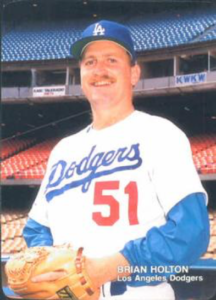 The last few years the
The last few years the 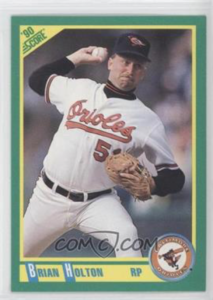 for seven years with little success, he’d finally made the team in 1987, and he’d pitched well enough to hold his spot on an awful Dodgers team that finished fourth in its division.
for seven years with little success, he’d finally made the team in 1987, and he’d pitched well enough to hold his spot on an awful Dodgers team that finished fourth in its division.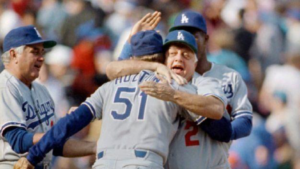 The Dodgers went on to win the World Series 4 games to 1.
The Dodgers went on to win the World Series 4 games to 1.